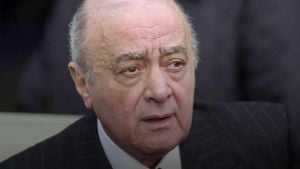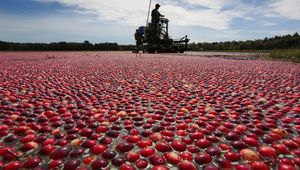Nasa is facing critical challenges concerning the return of two astronauts who have been stranded aboard the International Space Station (ISS) for over two months. Astronauts Butch Wilmore and Suni Williams were originally scheduled to return home after what was supposed to be only an eight-day mission, but issues with their Boeing Starliner spacecraft have kept them far longer than anticipated.
The astronauts launched from Cape Canaveral on June 5, 2024, for the first crewed test flight of Boeing's Starliner. Unfortunately, their spacecraft encountered serious technical difficulties shortly after arriving at the ISS on June 6, including critical thruster malfunctions and helium leaks.
During the ascent, five of the Starliner’s thrusters failed to provide adequate thrust, which delayed docking procedures. This failure was compounded by the discovery of multiple helium leaks which posed significant risks for the spacecraft's propulsion system.
At present, NASA is deliberatively considering options for the astronauts' return. One possibility is to bring them back onboard the Starliner, but if NASA concludes the spacecraft is unsafe, they might employ SpaceX's Dragon capsule scheduled for another crewed mission.
NASA Associate Administrator Ken Bowersox stated, “We’re reaching where, by the last week of August, we really should be making a call.” This decision-making timeline underscores the urgency, as supplies on the ISS are limited.
Internal discussions at NASA have revealed potential disagreements about the best course of action, highlighting the complexity of the situation. Meanwhile, Boeing has expressed confidence in the Starliner’s recovery from its issues and its future capability to return to Earth safely.
To alleviate concerns of being stranded, NASA officials have assured the astronauts they have adequate supplies and the situation is being monitored effectively. “They are not stranded,” NASA officials emphasized, citing operational protocols to keep the crew safe.
There is, nevertheless, the looming possibility of extending their stay on the ISS until 2025 if necessary. Such measures would require significant adjustments to future missions and docking schedules, as there are limited docking bays on the station.
If the decision favors using the SpaceX Dragon for the astronauts’ return, NASA would schedule the spacecraft to undock and send the astronauts home early next year, complicatively readjusting several upcoming launch schedules.
The astronauts have maintained busy schedules aboard the ISS, conducting research and aiding routine operations, showcasing their resilience. NASA’s chief astronaut has praised their preparedness, stating they remain ready and optimistic about their situation.
For the ground control teams, significant engineering work continues as Boeing tests the Starliner's malfunctioning systems. Analysts are investigating the failures observed during ascent, ensuring lessons are learned to improve safety standards for future missions.
“NASA is committed to their safe return, and we’re ensuring flexibility for the best outcome,” Bowersox added during media briefings. The agency is thorough, examining all aspects of potential risks to the astronauts’ safety each step of the way.
Boeing's current challenges are not just about managing the return of Wilmore and Williams but also about the organizational and technical fixes needed to restore confidence across the agency. The longer the astronauts remain aboard the ISS, the more data will be collected about long-duration spaceflight, which is valuable for future missions beyond low Earth orbit.
This unusual situation only emphasizes the unpredictability associated with space missions, captivating the attention of the scientific community and the general public. With the timeline growing uncertain, it's becoming increasingly critical for NASA to refine its operational directives to address the complex challenges of human spaceflight.
The saga has also raised discussions about contingency plans for undocking and landing procedures for both the Starliner and the Dragon capsule. Should Starliner be deemed unfit for crew return, it may attempt to undock and fly back empty, creating even more logistical planning for NASA teams.
With all eyes on NASA’s next decision, it appears there remains no shortage of attention on the importance of both safety and innovation as the agency navigates these complicated waters of space exploration. The future of crewed missions largely relies on these resilient astronauts and the thorough evaluations of the vehicles they depend on.
Common themes of problem-solving and innovation echo throughout the discussions surrounding Starliner, reflecting the broader narratives of space exploration's inherent risks and rewards. Whatever the outcome, those directly involved will play significant roles as history marches on toward greater discoveries.
Every choice NASA makes now illustrates efforts to better navigate the complex world of space travel, with all players committed to operational excellence for manned missions. The dramatic backdrop of space exploration continues to evoke both caution and curiosity, keeping enthusiasts and engineers alike anticipating what lies beyond the stars.



